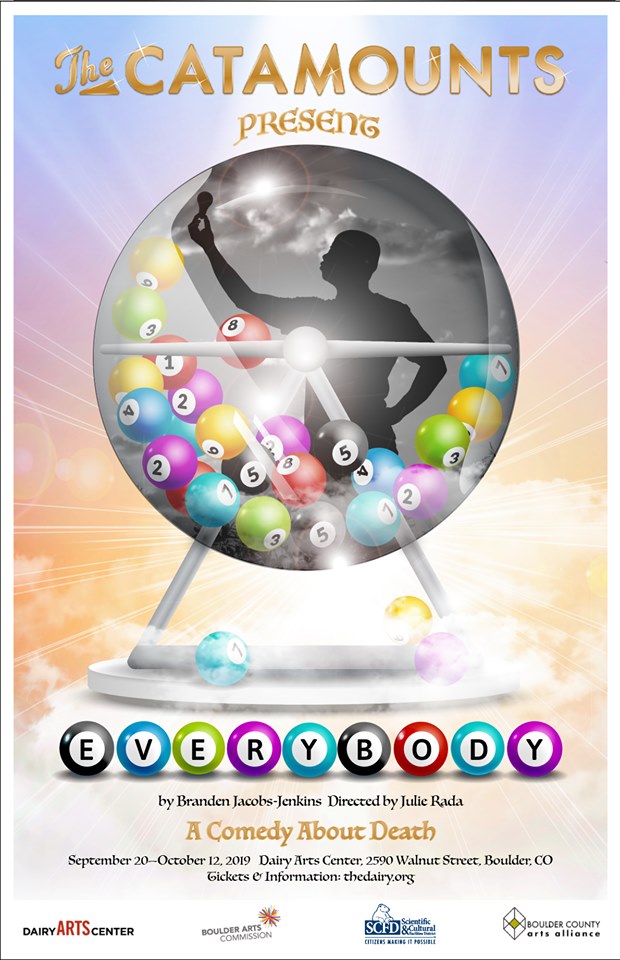
Everybody by playwright Branden Jacobs-Jenkins is a… hm. You see, it… huh.
It’s a stumper, at least when it comes to describing it.
It’s the kind of stumper you should see. Based on a 15-century morality play called Everyman, Everybody is a ponderous and philosophical exploration of life and death, posing chewy questions about what our deeds amount to, what we truly mean to people, and we leave behind.
Now is usually when I would say something to the effect of “Jason Maxwell steals the show as a giant talking trophy” — but here’s the trick upon which Everybody pivots: the lead actor changes (or doesn’t) every night, based on a ping-pong ball randomly drawn from a hopper.
And why is the lead actor (in a role representing us all — “Everybody”) arbitrarily selected? The script suggests that the gimmick draws attention to the randomness of death, and/or that it helps remove the concept of identity from the play. (I warned you, this’un’s philosophical.)
However, I can’t help but think if you asked The Catamounts about the role change-up, they might simply say, “Why not?”

It was not entirely clear to me how the selection of the night’s Everybody — during the preview performance that I attended, the lucky duck was Hossein Forouzandeh — impacts the shuffling of the remaining roles. It is explained to the audience that there are 120 possible combinations… whatever that means. However it shakes out, the choice pays off for the audience, as it keeps the play’s energy high and lively. There is a rich tension in the room — you know that the actors have prepared for this, but how prepared can they possibly be?
That liveliness and tension are crucial to Everybody, which wades into some deep and challenging waters. In the few instances when I sensed the audience (myself included) begin to lose interest, something energizing would suddenly occur in the play. To tell you more would change your experience, so I will say that Jacobs-Jenkins’ script breaks the fourth wall constantly and in surprising ways. The play is well aware that its subject is dense, and pauses to explain, address, or lightly poke fun at itself.
The Catamounts are using the Dairy Arts Center’s Carsen Theater, a black box which serves as an effective house for this intimate and often manic story. Director Julie Rada makes sure there is always an actor running, speaking, or dancing within a few feet of every audience member. Though Everybody is not what I would call an interactive show (the audience never leaves their wide circle of chairs surrounding the actors), the ensemble is certainly engaged with its audience, weaving through their seats, making loaded eye contact, and in a chilling scene called “La Danse Macabre,” silently asking each spectator to confront their own mortality.
Everybody is not an easy play, but it isn’t a lecture either. Jacob-Jenkins’ “comedy about death” — which was a finalist for the Pulitzer Prize for Drama in 2018, by the way — has the guts to make a game out of theater and of death, and The Catamounts have the guts to invite us to the party. I applaud them both.
